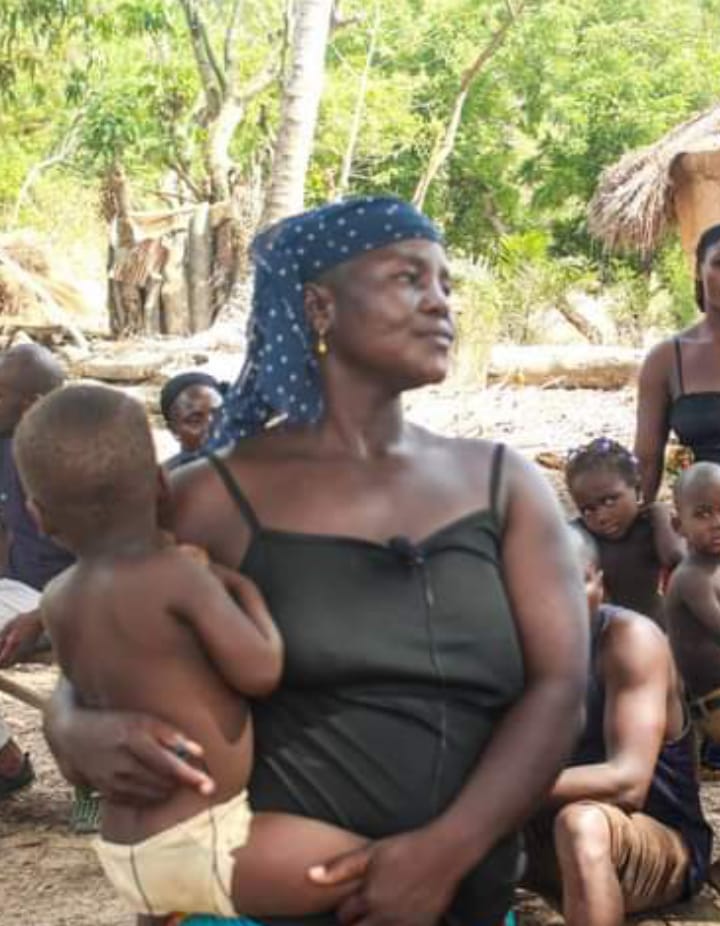
In Zokutu community, located in Kuje Area Council, Nigeria’s Federal Capital Territory (FCT), over 4,000 residents do not have access to potable water. The community relies on water that looks like a puddle of brown mud gotten from a stream. Still, residents have continued to consume the water in that terrible condition.
The community has been facing this problem for over 20 years. Different organizations have visited and used their plight for photo-ops without a solution, so they were wary of visitors.
During Tracka’s first visit, they refused to speak with us. But after further probes and reassurances that we were genuinely interested in their plight, they obliged.
Residents of the community have to go the extra mile to boil the water they fetch for daily consumption. But sometimes, it is not enough. Many residents have developed ailments and died from consuming the water.

The youth leader of the community, Comrade John Matthew, elaborated on how the water has resulted in death for some residents.
“Two years ago, we lost our children due to pipe-borne water diseases. The health clinic here doesn’t have what will treat our children on that sickness, so we lost them.” he said.
The lack of water and sanitation locks women in a cycle of poverty. They also need clean water to wash themselves or their menstrual cloths and a place to dispose of their menstrual pads if they are using them.
Mrs Rose, a resident, spoke to us about women’s experience in the community using the water during their menstrual period.
“I grew up with this water problem; now I have become a mother, it has become worse. We use the bad water like that for our menstruation. We use rags or old clothes to take care of ourselves during that period with the dirty water like that. We are used to it and don’t feel anything again because our pains and cries are not yielding any positive results.” said Mrs Rose.

Unavailability of WASH facilities in schools and homes will make a big difference to girls’ upbringing and determine their presence at school during their monthly periods. Irregular attendance can lead to lower grades and may, eventually, mean that the girl drops out of school altogether.
Tracka engaged a teenager who revealed that she has often missed schools and tests because of the contaminated water.
“I’m a student in SS3, we are writing our WAEC this month, and this lack of clean water has affected my school. I go to school late, and sometimes I will miss tests or two or more periods of the lesson because I need to get water to use before going to school and after closing from school. Every day, I wake up by 4 am to go to the river and don’t come home until 8 or 9 am, then I start preparing for school.” she told Tracka.

The community head lamented the visits from different people and organizations without an end to their problem.
“You came here some months ago, and I wasn’t around, but my people told me. It is because you speak our dialect; if not, I will not listen to you. Many people have come here to take our pictures and record videos. After that, we did not see anyone again.”
Esther, a middle-aged woman in the community, spoke about how their ordeal drinking the water.
“We drink the water because we don’t have any choice. We have to filter the water by removing some particles before taking it home to boil and drink. The wahala is too much, and it does not even still make the water safe.” she revealed.
“I have spent a lot of money buying drugs because anytime I use the water without boiling it, I begin to purge and have health issues. It has caused a lot of illness to us in the community.” she continued.
The youth leader outlined the steps they have taken to reach out to the government without success.
“We have written to the local government chairman many times, even the Senator, but nothing has been done. We don’t know if they see the letters and just ignore them or if something else is the matter. We pray that our water problem will be solved one day.” he said.
We urge Hon. Abdullahi Suleiman Sabo, the Chairman of Kuje Area Council, Hon. Hassan Usman Sokodabo representing Abuja South Federal Constituency, Senator Phillip Aduda representing FCT Abuja, and FCT Minister of state Ramatu Tijani Aliyu, to urgently look into this issue and provide a clean water source for the community. This is an emergency situation in the nation’s capital and must be treated.
Story by Ayomide Ladipo and Garba Abdullahi.

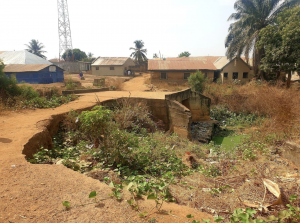
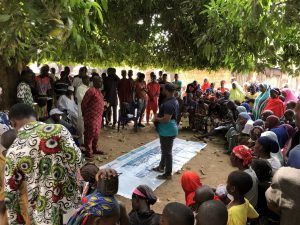
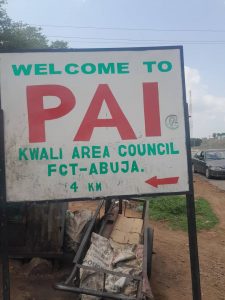
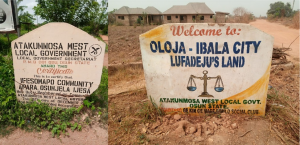
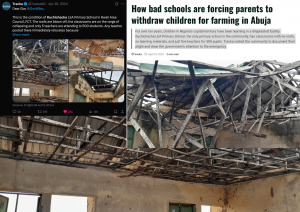

I am not surprised I visited this Area on assessment of health facilities some years ago